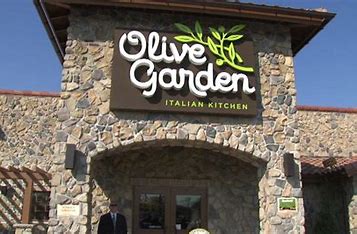Darden Restaurants Inc., the parent company of popular chains like Olive Garden and LongHorn Steakhouse, has observed a concerning trend in consumer behavior, particularly among lower-income families. Despite recording a significant increase in total third-quarter sales, CEO Rick Cardenas highlighted a noticeable decline in transactions from households earning below $75,000, with even steeper drops among those earning below $50,000.
This shift in consumer spending patterns underscores a broader disparity in the economy, with higher-income individuals driving growth in the dining-out sector while lower-income families are scaling back. According to Darden’s earnings call, transactions from households earning at least $150,000 have increased compared to the previous year, indicating a divergence in spending habits based on income levels.
CFO Raj Vennam characterized this trend as an “ongoing change” in Darden’s income mix, reflecting a fundamental shift in consumer behavior that is reshaping the landscape of the restaurant industry. As lower-income consumers reduce their dining-out frequency, higher-income households are stepping in to fill the gap, contributing to a bifurcated economy where discretionary spending varies significantly based on income brackets.
Inflation meets dining
Cardenas’s observations during the earnings call shed light on the current state of the American consumer landscape, which could have significant implications for the upcoming 2024 election. Despite strong economic indicators, consumer sentiment remains subdued—a trend often referred to as the “vibecession.” This discrepancy between economic data and public sentiment suggests underlying challenges for certain segments of the population, particularly lower-income households.
The housing market, characterized by soaring mortgage rates and home prices, has been one factor contributing to these economic anxieties. However, Cardenas’s remarks suggest a broader issue: a two-track economy where the financial well-being of the upper-middle class masks the struggles faced by lower-income families. This disparity is not unique to Darden but is reflected across the restaurant industry and beyond.
Even as Darden’s brands occupy the fast-casual and “casual” fine dining segments rather than traditional fast food, lower-income consumers are increasingly turning to more affordable dining options. This trend is mirrored in the broader fast-food industry, where rising prices and labor costs—referred to as “McFlation”—are impacting affordability for lower-income individuals.
McDonald’s CEO Chris Kempczinski highlighted the importance of affordability for this demographic, acknowledging that many low-income consumers find it cheaper to cook at home. Looking ahead to 2024, he anticipates a greater focus on affordability in the consumer landscape.
Despite affordability challenges, Vennam noted that Darden’s brands have not yet reached their price peaks. He emphasized the company’s commitment to offering competitive pricing, aiming to stay below inflation over the long term. This strategy includes leveraging discounts and promotions, such as Olive Garden’s buy-one, take-one to go entrees, to attract customers while maintaining affordability.
Return to status quo?
While lower-income households reduced their dining out expenditures at Darden’s chain restaurants during the third quarter, several of the company’s establishments achieved record-breaking sales. Eddie V’s, known for its seafood offerings, achieved its highest-ever total weekly sales in February, while Olive Garden set a new sales record for Valentine’s Day.
Interestingly, despite the decline in spending from lower-income households, the composition of income groups dining out reflects a return to pre-COVID patterns. According to Cardenas, the distribution of guests across income brackets at Darden’s brands closely mirrors pre-pandemic levels. This suggests that the company has been able to navigate the evolving economic landscape and maintain operational stability.
Cardenas emphasized that the current income mix aligns closely with pre-COVID levels across all segments and brands within Darden’s portfolio. This consistency provides a sense of familiarity and reassurance, indicating that the company is adept at operating within this environment and adapting to shifting consumer behaviors.
